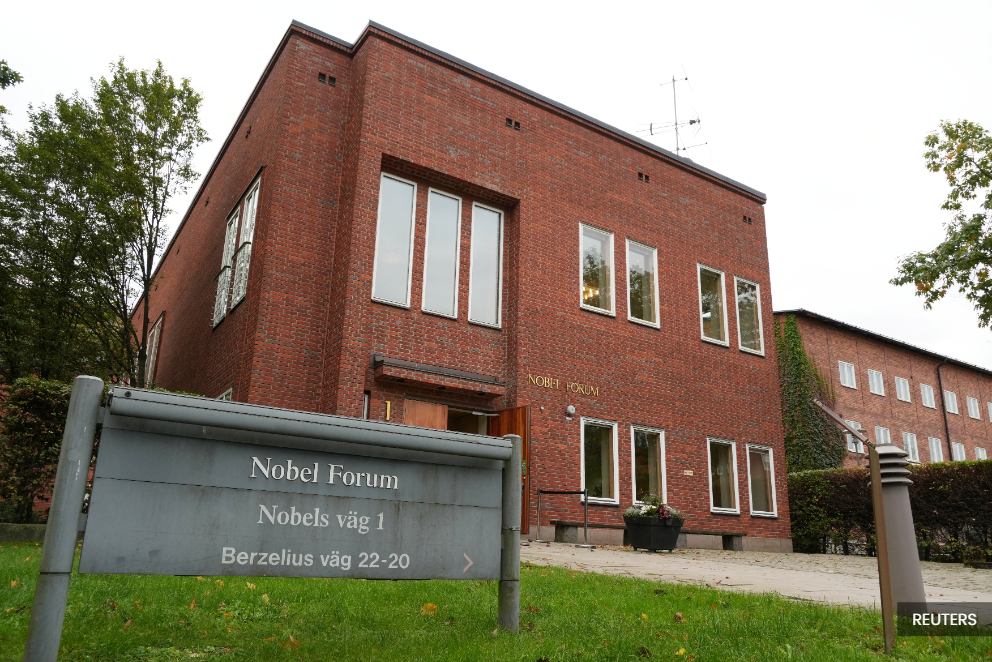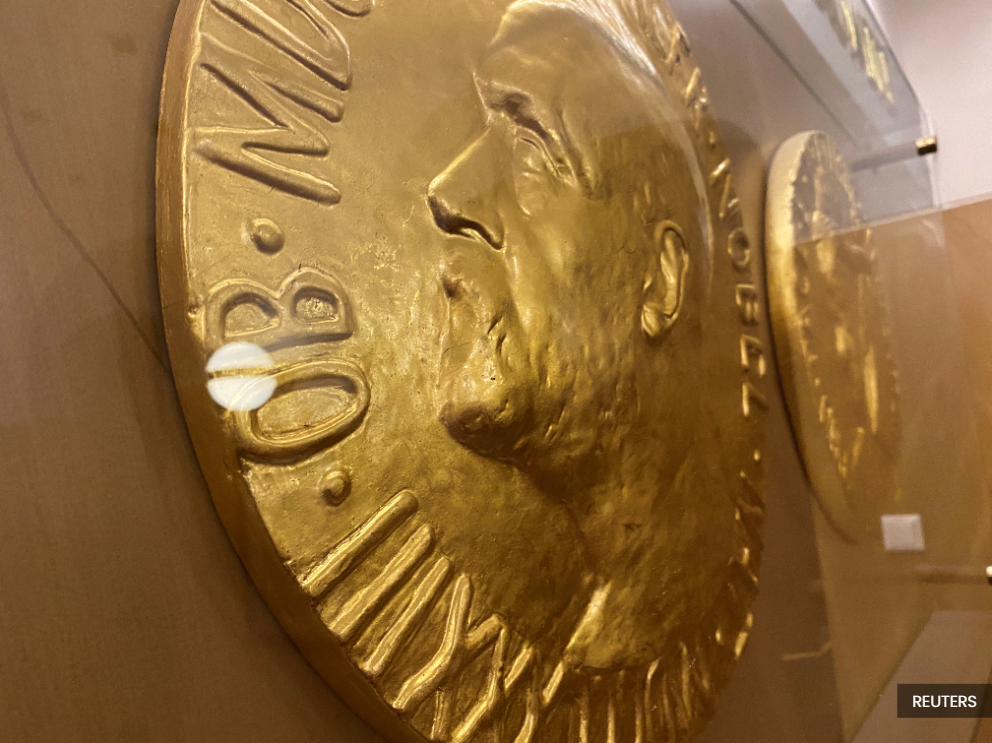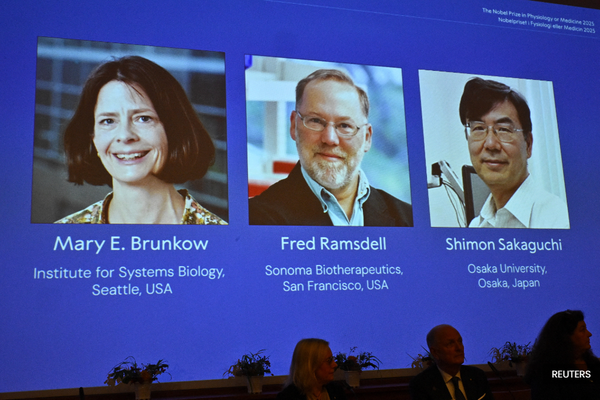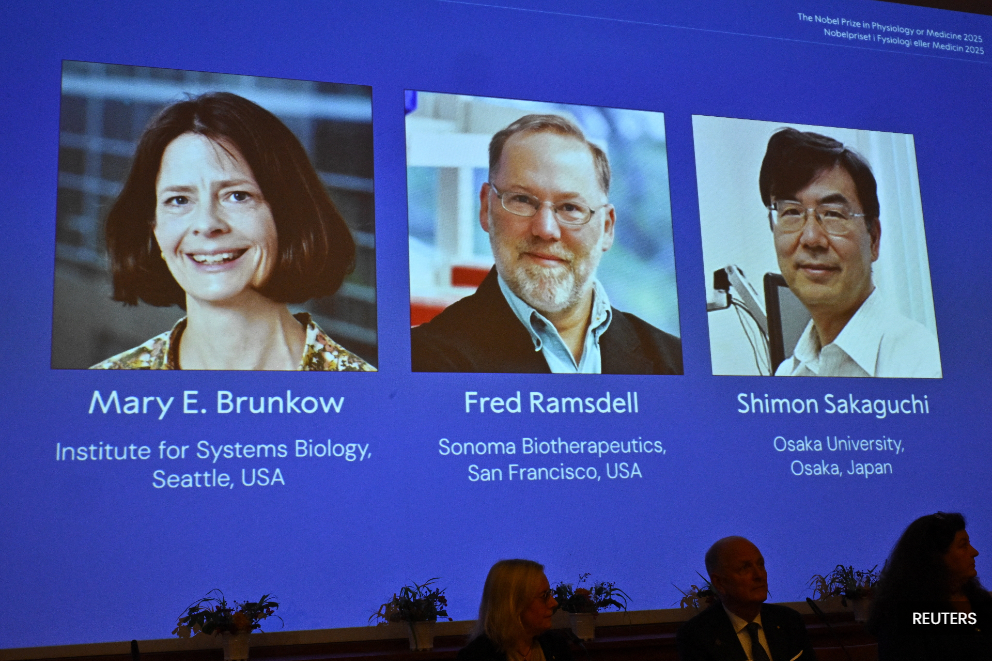STOCKHOLM, Oct 6 — American scientists Mary Brunkow and Fred Ramsdell, and Shimon Sakaguchi from Japan, won the 2025 Nobel Prize in Physiology or Medicine on Monday for work shedding light on how the immune system spares healthy cells, creating openings for possible new treatments for autoimmune diseases and cancer.
Their discoveries relate to peripheral immune tolerance, or "how we keep our immune system under control so we can fight all imaginable microbes and still avoid autoimmune disease", said the Karolinska Institute's rheumatology professor Marie Wahren-Herlenius, whose organisation is the prize's awarding body
The institute said all three laureates brought to the fore so-called regulatory T cells, a class of white blood cells that act as the immune system's security guards, keeping immune cells from attacking the body.
Research into what stops immune system attacking itself
Brunkow, who found out she had won after being woken by her dog barking at a news photographer on the front porch of her Seattle home, said she, Ramsdell, and their colleagues had isolated a gene called FOXP3 that could be used as a marker for the cells.
"They are rare, but powerful, and they are critical for sort of dampening an immune response," she said in an interview, describing the cells as a braking system that prevents the body's immune system from tipping over into attacking itself.
Sakaguchi expressed surprise at a press conference in Osaka, Japan, because he felt any significant recognition would have depended on more development advances.
“I used to think that some sort of reward may be forthcoming if what we have been doing will advance a little further and it will become more beneficial to people in clinical settings,” he said calmly, cracking a smile now and then.
The press conference was interrupted so Sakaguchi could take a congratulatory phone call from Japanese Prime Minister Shigeru Ishiba, who inquired about the potential effectiveness of immunotherapy in cancer treatment.
"I believe the time will come when cancer is no longer a scary disease, but a curable one," he said.
The award winners are selected by the Nobel Assembly of the Karolinska Institute, a leading medical university, and receive a prize sum of 11 million Swedish kronas (US$1.2 million or RM5.06 million), as well as a gold medal presented by Sweden's King Carl XVI Gustaf.
Brunkow is senior programme manager at the Institute for Systems Biology in Seattle, while Ramsdell is scientific adviser at Sonoma Biotherapeutics in San Francisco. Sakaguchi is a professor at Osaka University.

More than 200 trials on humans in progress
Jeffrey Bluestone, a decades-long friend of Ramsdell and a fellow co-founder of Sonoma Biotherapeutics, told Reuters that his associate's extraordinary contribution was finding the FOXP3 gene, initially in mice, that controlled the development of regulatory T cells. They described their findings in a paper in 2001.
"Those cells were the master regulators of the tolerance of the immune system," he said.
Ramsdell could not be reached by Reuters — nor by Brunkow or Bluestone, with Bluestone saying he may be on a hiking trip in an area without cell phone reception.
After announcing the winners, the institute's Thomas Perlmann said specific therapies had yet to win market clearance, but more than 200 trials on humans involving regulatory T cells were ongoing.
Among companies in the early race, Ramsdell's Sonoma Biotherapeutics is partly funded and supported by United States (US) drugmaker Regeneron to work on therapies against diseases including inflammatory bowel disease.
Also targeting that condition, Quell Therapeutics has partnered with AstraZeneca. Other biotech firms exploring the approach include Bayer's BlueRock.
Medicine the first prize of Nobel season
The Nobel Prizes were established in accordance with the will of Alfred Nobel (1833-1896), the Swedish inventor of dynamite and a wealthy businessman.
They have been awarded since 1901 for outstanding contributions in science, literature, and peace. The economics prize was added later and is funded by the Sveriges Riksbank, Sweden's central bank.
Expert committees select winners from various institutions. All prizes are awarded in Stockholm, except for the Peace Prize, which is presented in Oslo, Norway.
Past recipients of the Nobel Prize in Physiology or Medicine include renowned scientists like Alexander Fleming, who shared the 1945 award for discovering penicillin. In recent years, the prize has recognised major breakthroughs, including those that enabled the development of Covid-19 vaccines.
Last year's medicine prize was awarded to US scientists Victor Ambros and Gary Ruvkun for their discovery of microRNA and its key role in how multicellular organisms grow and live.
Medicine, in accordance with tradition, kicks off the annual Nobels. The physics award is next, on Tuesday.
The awards culminate in ceremonies attended by the royal families of Sweden and Norway, followed by lavish banquets held on December 10 — the anniversary of Alfred Nobel's death.



